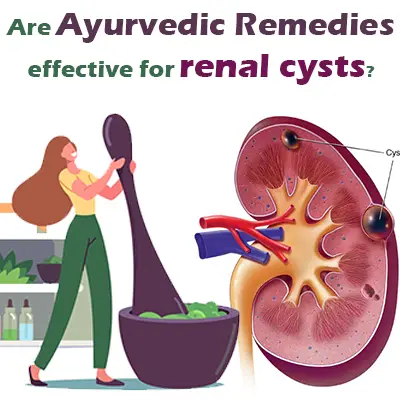What are renal cysts?
Renal cysts are blisters filled with fluids, and they form in the kidneys. They are also known as kidney cysts and generally, they are identified as simple cysts. The fact that they are called simple is because they have thin outer walls and contain liquid-like (watery) fluids inside them. Also, they do not provide irreparable damage to the kidneys.
In simple words, they are not central in harming the kidneys. Older adults can procure simple cysts in their kidneys and do not experience symptoms.
Most people determine renal cysts as the cysts of polycystic kidney disease, which is expected as both of these kidney conditions are associated with sacs filled with non-cancerous fluids. The severity of PKD cysts is more than simple renal cysts as PKD is a dangerous genetic kidney disorder that affects the rate of functioning of the kidneys and leads the kidneys to end-stage renal disease. But simple renal cysts rarely cause complications or symptoms in the body. Therefore some simple renal cysts are surrounded by thick walls and contain solid-like material inside them. That is the reason that they may appear more complex than other cysts. In some cases, these round pouches of fluid in the bean-shaped organs can be associated with severe disorders.
What causes renal cysts?
The renal cysts are caused by the thickening of the tubes of nephrons. Nephrons are the functional and structural units of the kidneys. These tubes are also filled with fluids. The cause of simple renal cysts is unclear, but it is clear that genetic inheritance does not play a role in their occurrence. However, It is believed that the development of simple renal cysts relies on tubular damage due to injury or microscopic blockages. Tubules are one of the functioning parts of the kidneys that assist in the execution of the primary function that is blood filtration. The role of tubules present in the nephrons is to return the essential substances into the bloodstream while removing the waste products and excess fluids.
What are the signs and symptoms of renal cysts?
Simple renal cysts rarely cause symptoms, due to which many people can live with renal cysts unknowingly. Major complications arise when these cysts rupture which can lead them to be infected and bleeding. They can create issues for the abdominal organs if they enlarge and put pressure against surrounding organs in the abdomen. If they cause symptoms, then the person can experience:
● The painful sensation between the ribs and hips, stomach, or back.
● Fever.
● Frequent urges to urinate.
● Dark or bloody colored urine.
The rate of functioning of the kidneys can be affected according to the place that the cyst is invading. Suppose the cyst creates an obstruction for the kidneys in filtering the blood, then it can lead to a type of high blood pressure.
How are simple renal cysts diagnosed?
The diagnosis of the simple renal cysts is accidental as they hardly cause symptoms or complications. When the patient sees the doctor regarding other medical conditions, there are chances of detection of simple renal cysts. The underlying tests are used to diagnose simple kidney cysts. These tests include:
● Ultrasound: Clear internal images of the body are created by high-frequency sound waves and echoes.
● Computed tomography (CT): This test provides a cross-section of the body.
● Magnetic Resonance Imaging (MRI): This test uses magnetic and radio waves to create an internal body image.
What is the leading treatment for Renal cysts?
Allopathic treatment includes aspiration and sclerotherapy for the treatment of simple renal cysts. When these modes of treatment fail to aid the cysts, doctors opt for surgery for the patient. Surgery has life-threatening risks, and allopathic treatment has dire consequences on the body. That is why Ayurveda is the savior, it has introduced Ayurveda remedies for renal cysts, these remedies are the known source of ayurvedic natural healing capabilities and deal with the cysts effectively. Ayurveda remedies for renal cysts are free from preservatives and have a guaranteed authenticity that can create a positive impact on the body. That is why Ayurveda is the best passage to keep the kidneys healthy and free from cysts.
One can acquire natural healing if he opts for ayurvedic treatment as the holistic and natural Ayurveda remedies for renal cysts reduce the progression of cysts' growth rate and boost kidney function. The ayurvedic diet charts and lifestyle play a significant role in the ayurvedic treatment for simple renal cysts. A healthy diet and lifestyle can help control elevated levels of blood pressure. High blood pressure is the leading cause of kidney disease, and sometimes cysts can create obstructions in the functioning rate of the kidneys.
The bottom line is that Ayurveda remedies for renal cysts can reduce elevated blood pressure levels and control cysts' rates on the kidneys. The treatment effects are long-lasting and do not hamper the kidneys.






